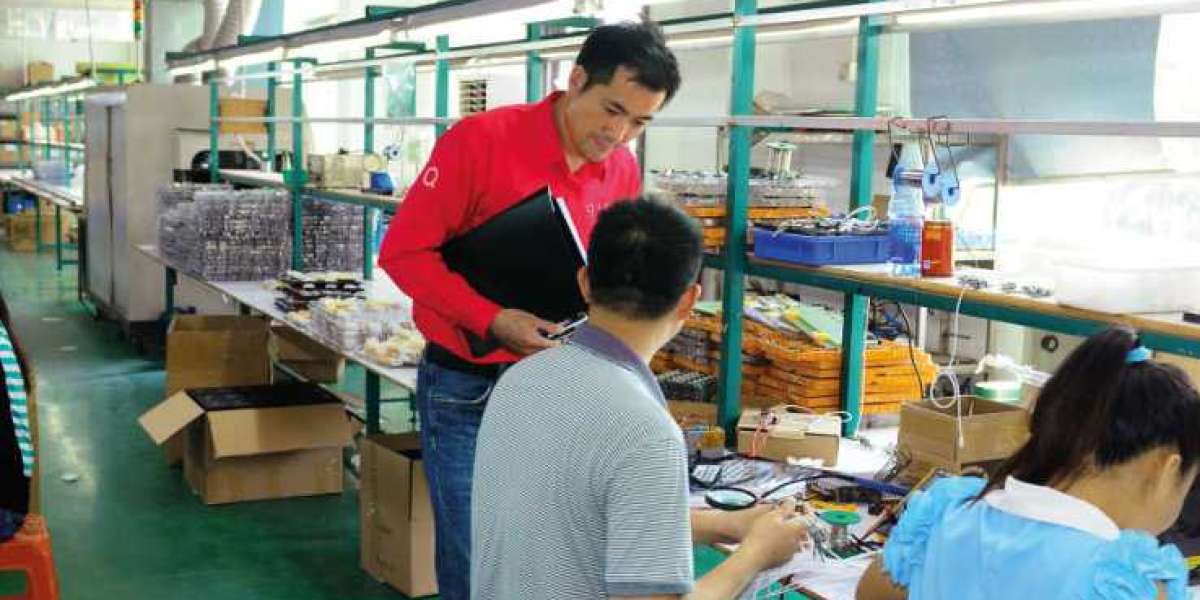Are the people who make your products treating their employees with respect, providing them with adequate compensation, and placing a priority on their health and safety? Do you have full visibility into their practices, and are you taking measures to guarantee that they comply with all applicable labor laws? Today, social compliance is a significant issue that many businesses are concerned about. In the supply and distribution chain, it refers to the process of safeguarding the legal rights, physical well-being, and personal safety of employees and workers. Monitoring suppliers for social compliance entails ensuring that their employment policies are lawful and ethical, as well as that they are taking measures to address any problems that may arise. In this section, we will discuss how social compliance operates as well as how to conduct an audit of a manufacturer to ensure that there are no social compliance issues in your supply chain.
Why Should You Be Concerned With Maintaining Social Compliance?
Imagine that you are unaware that one of your manufacturers employs children in the production of the goods they sell to you. When word gets out, all of a sudden, the media has you in their sights when they are reporting the news. Because of something that was going on behind your back, your business is now embroiled in a controversy that you were completely unaware of. When this happens to your company, the reputation of your brand gets dragged through the mud, and all you can do is sit there, clench your teeth, and wait for the sales numbers to go down. Putting aside your worries about the reputation of your brand, wouldn't it be preferable to have the peace of mind that comes from knowing that no one in your supply chain violates the rights of the people they employ? Do you not want to have a finger on the pulse of how your suppliers run their businesses and the ability to make improvements in the event that problems arise? Developing a social compliance program to assist you in achieving this goal is helpful, and audits play an important part in this process.
What exactly is an audit of social compliance?
An inspection of a factory known as a social compliance audit has the purpose of locating potential violations of employment laws and unethical business practices. It entails dispatching a quality control inspector to the production facility so that they can observe the processes there firsthand. In most cases, it requires going to the factory, looking over the employees' work records, and conducting interviews with both workers and management. The objective is to unearth previously unknown issues, such as unfair disciplinary practices, child labor, forced labor, and concerns regarding safety. Some large retailers require their suppliers to undergo social audits in order to guarantee that they follow ethical business practices. Additionally, companies that place an emphasis on their corporate social responsibility (CSR) are more likely to have robust auditing programs. One of the standards that is held in the highest regard for carrying out these audits is the SA8000 Standard developed by SAI.
Auditing Using the SA8000 Standard and Its Guides
An SA8000 audit is carried out in accordance with the SA8000 standard, which is regarded as "the most prominent social certification program in the world."Its purpose is to assist businesses in "conducting business in a manner that is fair and decent for workers and to demonstrate their adherence to the highest social standards."
SA8000 is utilized not only for the purpose of certification but also as a standard to which suppliers are held accountable. Although Insight does not issue certifications to businesses, we do conduct audits based on the standard. In addition, we are able to carry out individualized social audits that cover a variety of other topics that are pertinent to the requirements of our customers.
Let's discuss the nine different aspects of social accountability that are looked at during an SA8000 audit.
#1 Child Labor
The auditor will make sure that every worker is at least 16 years old or older, whichever is higher according to the local laws. They examine the company's hiring procedures, such as identity verification, to ensure that the company does not inadvertently hire any workers who are under the legal age of employment. They also make sure that the working conditions for employees under the age of 18 are appropriate and in line with the laws of the local community.
#2 Labor Slavery or Other Forms of Coercion
The auditor searches for evidence that the company does not keep any documents, such as identification cards or passports, and that employees are unable to retrieve them. They make sure that the facility does not withhold wages, that it does not allow prisoners to be employed there, and that it does not restrict prisoners' movement.
#3 Concerning Health and Safety
The auditor searches for documentation that demonstrates the building has met the necessary safety requirements. They check to see that the facility has documentation of fire safety that has not yet expired, that it is operating in a building that is appropriate for its functions, and that it has documentation of safety inspections for both the building and the machines.
#4 The Right to Form Associations
The auditor will make sure that the employer respects the rights of all employees, including the right to bargain collectively or have access to alternative means in situations where collective bargaining is prohibited. They look for evidence that management is willing to meet with employees so that complaints can be voiced.
#5 Discrimination
The auditor investigates the procedures followed by the employer in areas such as recruitment, payment, access to training, promotion, termination, and retirement. When taking into account an employee's level of experience and seniority, they look for evidence that they are paid the same amount for the same amount of work.
#6 Disciplinary Procedures and Practices
The auditor looks for evidence that employees at the facility are not subjected to verbal, mental, or physical abuse or harassment. They investigate to see if the disciplinary procedures that are carried out at the facility are in full compliance with the law and whether or not they are excessive.
#7 Timing of Workdays
The auditor looks into whether or not the employees are working the required number of regular hours, as well as overtime, and whether or not they are taking the necessary breaks. The purpose of the audit is to determine whether or not the employee is receiving an adequate number of vacation days.
#8 Financial Compensation
The auditor will look into whether or not the workers are getting adequate wages and whether or not they are being paid fairly. They look for evidence that the time of payment and the frequency of payment comply with the law, that employees are paid during any probationary periods, and that any required overtime is paid for.
#9 Administration and Control
The management system of the company is examined by the auditor to determine whether or not there are policies in place to ensure social accountability. In addition to this, they look into whether or not the manufacturer oversees the work practices of any subcontractors that they employ.



